The World Is Burning. These Girls Are Fighting to Save It.
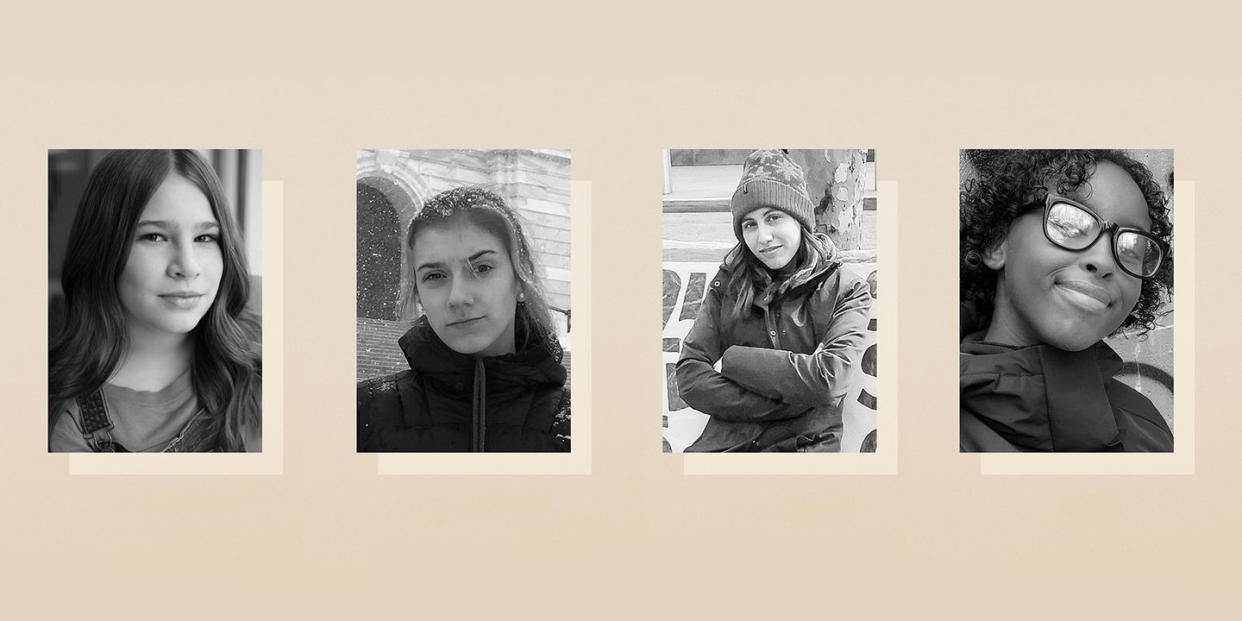
Haven Coleman was in the fifth grade when she realized the gravity of the climate crisis. After a school lesson on the devastating impact deforestation has on sloths-her absolute favorite animal-she Googled, “Can I stop deforestation?” which, in turn, led her to an article on climate change.
Terrified for the future of the planet, she emailed elected officials, rallied her local Denver community, and, since January 4, has spent every Friday sitting outside the Colorado State Capitol to demand political action on air quality, climate change urgency, coal plant retirement, and renewable energy.
Coleman, now 12, belongs to a rising generation of activists-many still too young to vote, or even to drive-fighting for climate justice. The movement gained momentum last August when 16-year-old Greta Thunberg of Sweden left school to strike in front of the Swedish parliament. Tens of thousands of teens and young adults around the world have since joined her by leaving class once a week to protest in their own countries with banners reading, "It's Our Future!" and "Make My Planet Great Again!" and "There's No Planet B!"
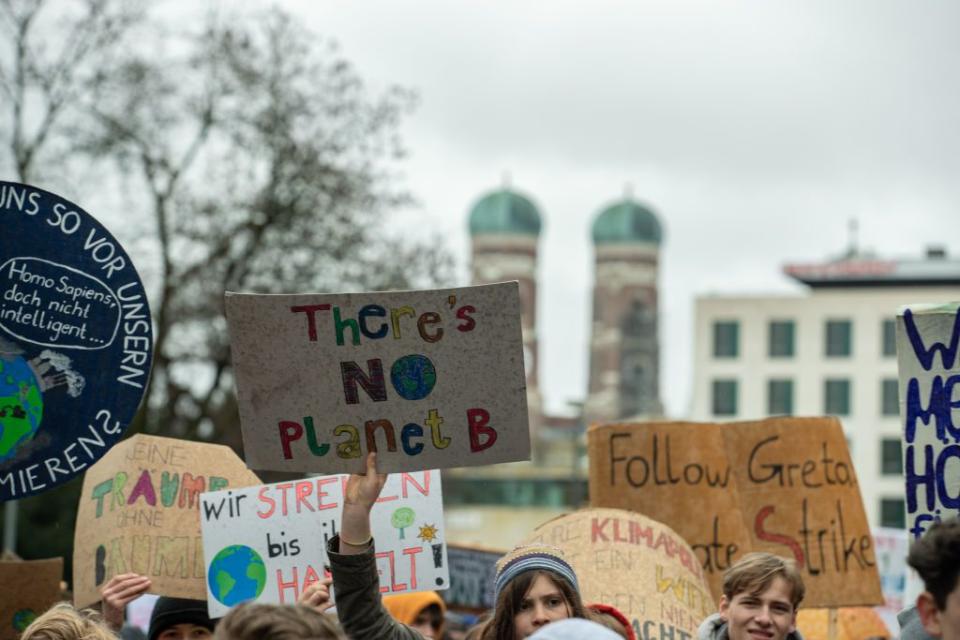
On March 15, these young global change makers will join forces for what's shaping up to be one of the biggest environmental school strikes in history. So far, almost 500 demonstrations are slotted to take place across 51 countries.
The organization spearheading U.S. involvement in the protest is called Youth Climate Strike U.S. (YCSUS). Coleman co-founded the group with Ilhan Omar's 16-year-old powerhouse daughter Isra Hirsi and 13-year-old Alexandria Villaseñor, who protests in front of the United Nations in Manhattan every Friday with a "School Strike 4 Climate" sign. The group's national press director is 16-year-old Maddy Fernands, who watches C-Span in her spare time and belongs to three other climate crisis awareness organizations.
They recruited organizers from almost all 50 states and fundraised over $9,000 for permits and equipment. (A full list of participating U.S. cities can be found here.)
As they prepare for Friday's strike, the ambitious and fiercely passionate young women talked to ELLE.com about the future of the planet, their goals for the movement-and what they'd say to President Donald Trump about climate change, given the chance.
What will happen on March 15?
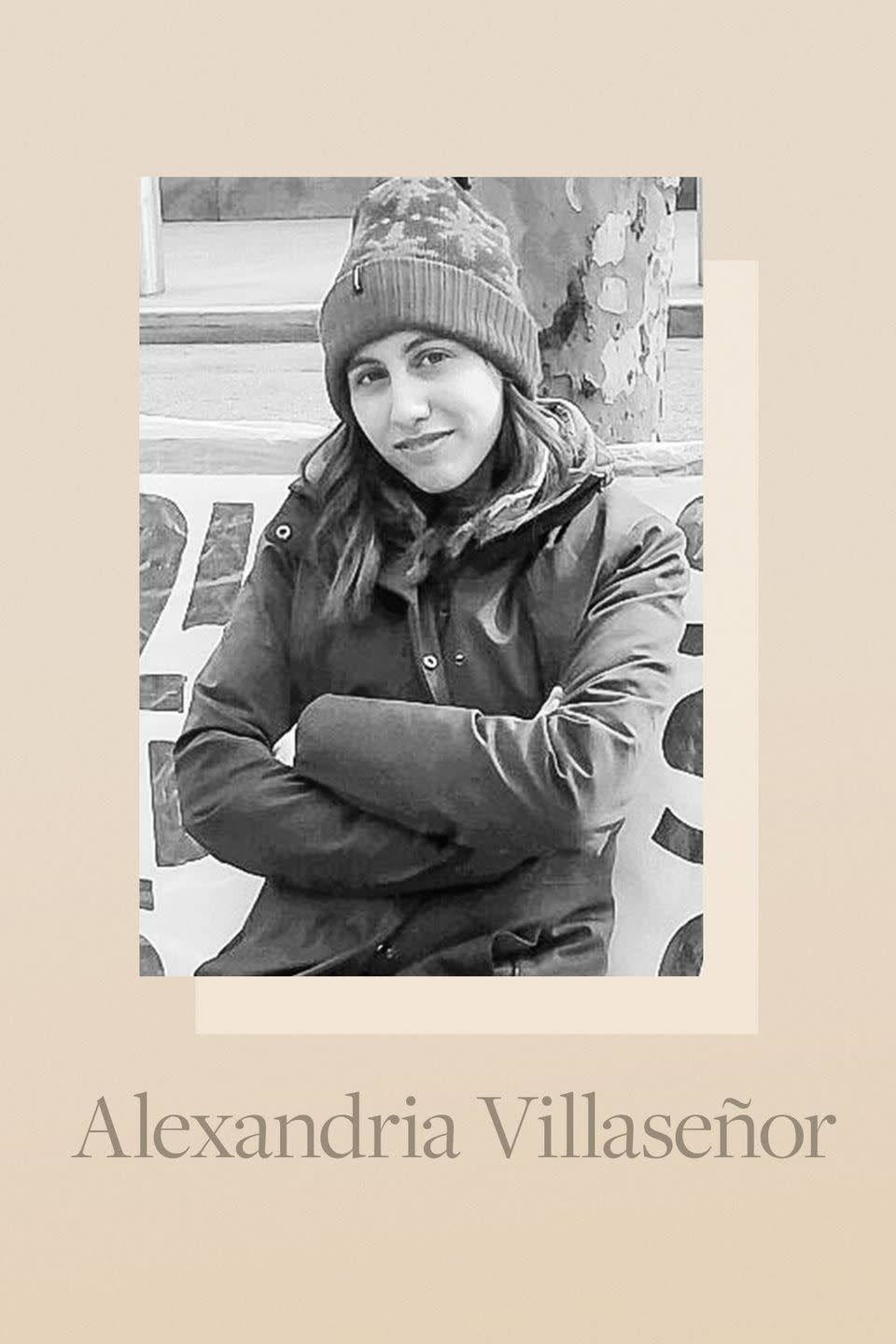
Alexandria: It's basically a global day of climate action, so over 50 countries will be participating. In the U.S., students from almost every state will mobilize to strike.
Maddy: We'll also be having very large strikes in some of the main population centers in the U.S. In D.C., we're having a strike and inviting politicians to speak and we're holding a press conference. The goal is to ramp up the pressure on the largest governmental organizations and bodies and figures in the world. We want to make sure that we emphasize the national nature of the strike and the symbolism behind going to the home of the national government and showing our disdain and our anger at their inaction.
Alexandria: And for people in New York, I'll be at the United Nations. There'll be a press conference from 9 a.m. to 11 a.m. At 2 p.m., there's going to be a strike starting out from Columbus Circle.
Isra: We have a map on our website, where people can see where strikes are happening in their state.
Haven: The idea is to collectively fight for our right to have a livable future.
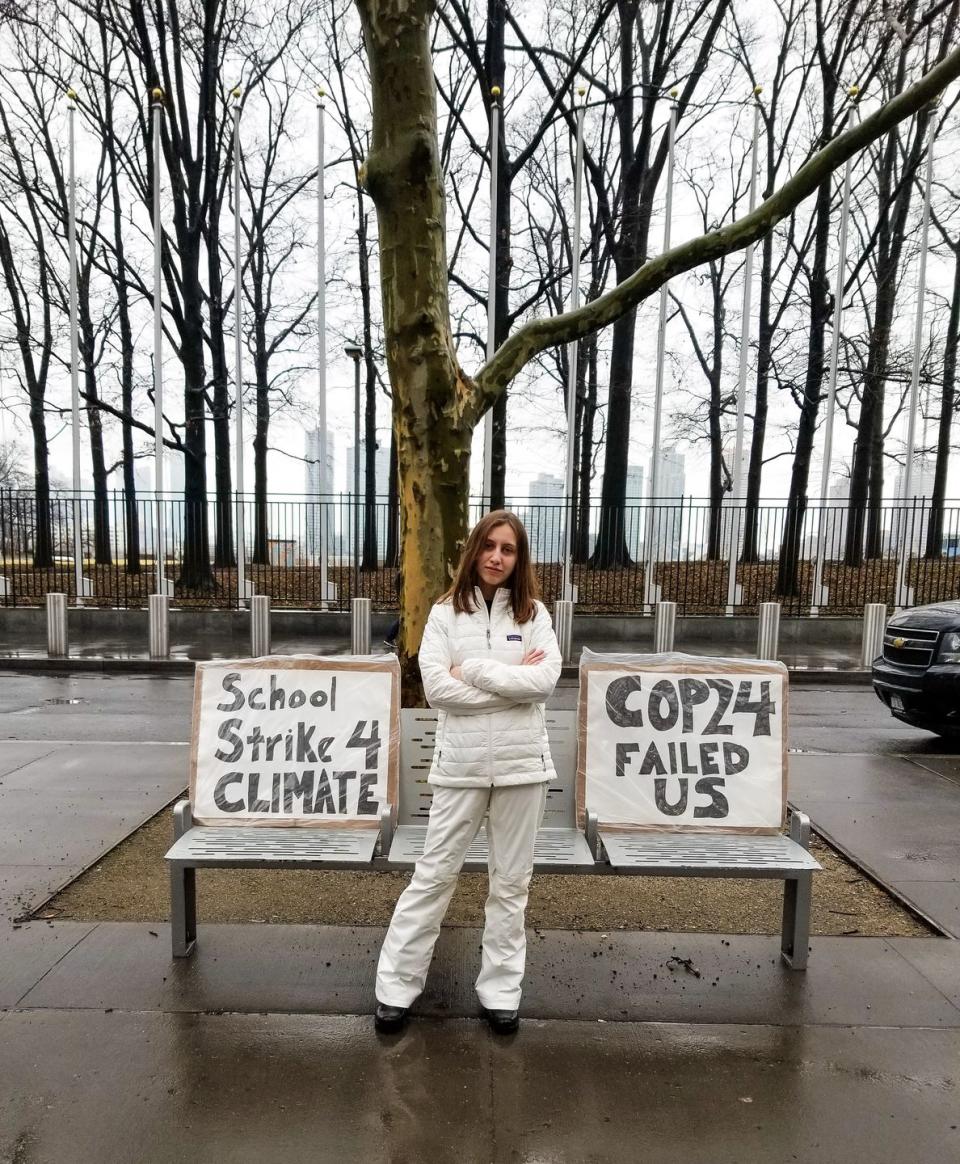
If you can't leave school on Friday, can you still participate?
Isra: Those who cannot participate can either wear the merch that we're selling on our site or wear green. We have a hashtag, #GreenClimateStrike and we want it to be as successful as possible. We do know that asking people to miss an entire day in school is difficult and isn't accessible to everybody.
Haven: Another way is to make noise, literally. Just make some noise in the middle of the class, so it disturbs the cycle of the class. The teacher will be like, "Why are you doing that for?!" Then you can just yell, "For climate change!"
There's so many issues that impact our world today, why focus on climate change?
Alexandria: When the Intergovernmental Panel on Climate Change( IPCC) report came out last October, people realized we only have 11 years left to reverse the worst effects of climate change before it becomes a planetary catastrophe. We don't have enough time to wait until we're in positions of power. We have to force the world leaders right now to start taking action.
Isra: If we don't have a world, we don't have a future to fight for other things.
Maddy: We see it as one of the largest threats to our future as a globe, to our future as humankind, to our future as young people. That's why we are the ones taking action.
How old were you when did you realized the gravity of climate change?
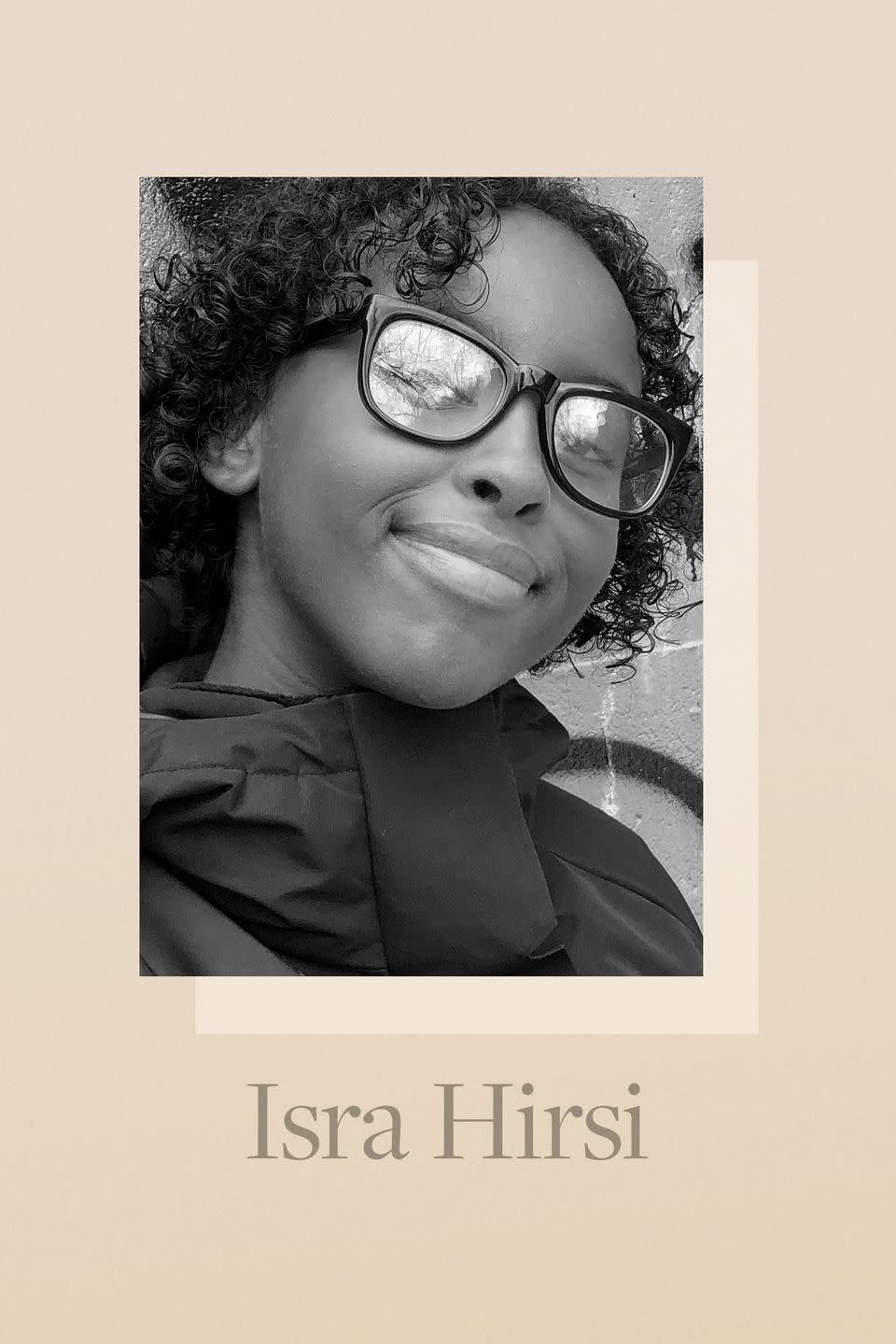
Isra: I'm from Minnesota and when I was 12, I learned about Line 3, an oil pipeline that would go through indigenous land and contaminate their water. How could that happen, when we've already taken so much away from them? I realized that climate change has its worst impact on communities of color. I wanted to make some change when it comes to climate change and marginalized communities.
Haven: I was 10 and I had this amazing 5th grade social studies teacher who brought in stuff about real world problems into our lectures. I love, love, love sloths, so when I learned from him that deforestation endangered the sloth, I was like, "I gotta do something." While I was researching how I could stop deforestation, I found out about climate change and I was devastated. But, I didn't stop and just get sad. I felt like I needed to do something since nobody had been doing anything. I am the only one who can do something. If adults aren't going do it, who is? Us kids have to.
Alexandria: I grew up in California, where climate change has been around me since I was little. One year, we had this massive drought where our lakes dried up completely and you could actually go and walk across the whole lake. I started saying saying, "This is not normal and this doesn't make me feel safe anymore."
This past year, when I was 13, I was visiting family an hour away from the wildfires and we had the worst air quality in the world. People were actually dropping on the streets from smoke inhalation. Since I have asthma, I had to leave California because I couldn't stay in that type of situation. I realized I didn't like what was going on. I knew I had to start doing something.
Maddy: I watched C-SPAN in middle school for fun and got a comprehensive education on climate change. People believe in climate change and people also believe that things should be done on climate change. However, many politicians take hundreds of thousands of dollars from fossil fuel billionaires and this money is driving the course of our government and is ruining our future. I got really mad that our world is going to disintegrate because of short-term profit by some politician.
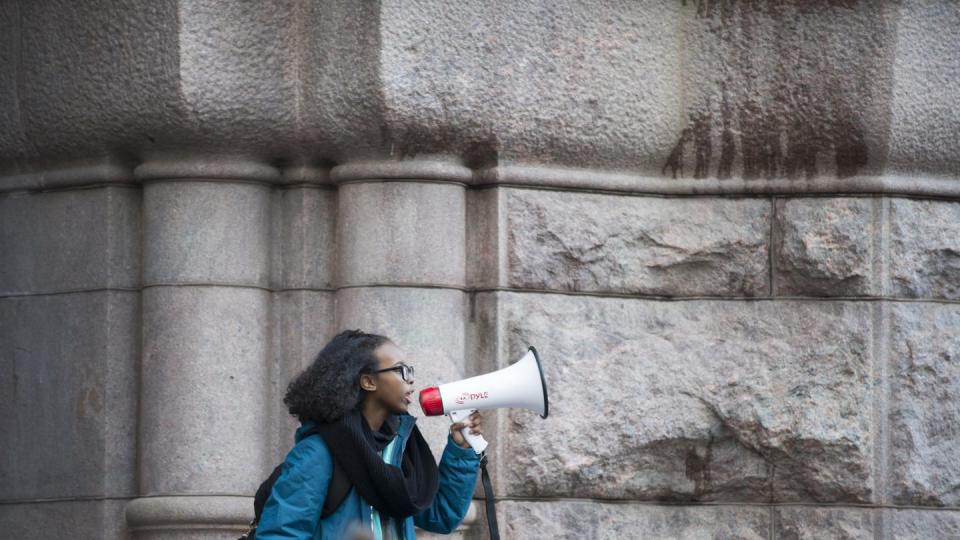
What makes a youth movement so powerful?
Haven: Adults can get depressed and sad when they think about climate change. They're not optimistic about fixing it, because they've seen so many trials and errors. But we haven't seen that, so we're more optimistic.
Maddy: We inspire each other. The momentum that March For Our Lives got last year inspired Greta Thunberg in Sweden to take action and to speak in front of the Swedish parliament. Her action then inspired us to think that we can make a difference in the U.S. We are becoming more politically active and more inspired to take action, because we see the success other young people have had when they've done similar things. That's why we, as a movement, have not been fearful of getting traction or being taken seriously even though we do have those concerns sometimes, because other young people have been able to stand out and have their voices be heard.
Alexandria: We're growing up in this generation where we have technology and media where we can connect with people all around the world and in the U.S. But also, our generation is more aware of what's going on around us.
President Donald Trump has questioned whether damage from global warming is intensifying throughout the nation. If you could sit down with the president, what would you tell him?
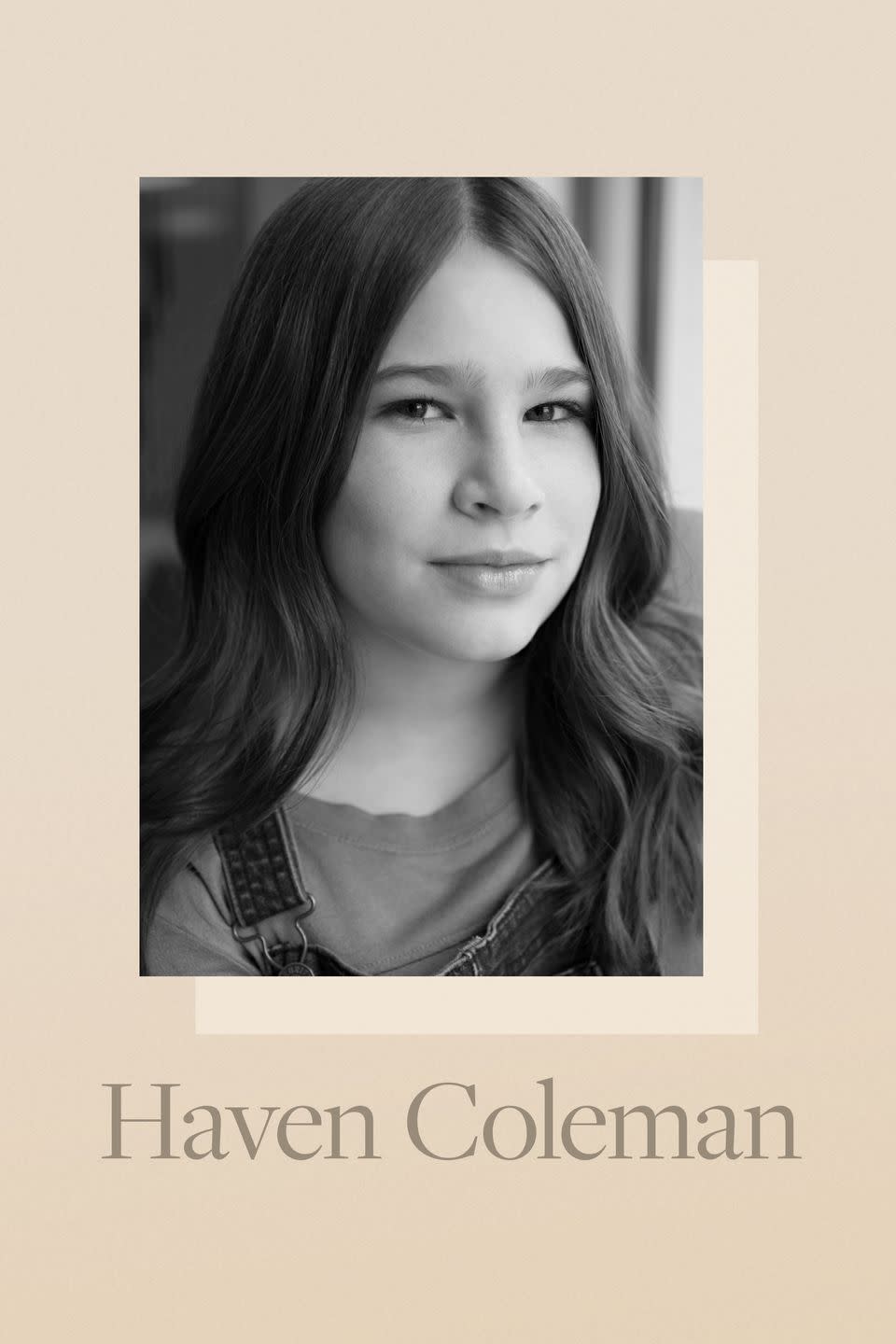
Haven: I wouldn't. Why spend time arguing with an old man, when you could be mobilizing people?
Alexandria: I would tell him that he will be viewed as a villain in the history books, but also that he, and especially other politicians and people in power, needs to stop being bought off by the fossil fuel industry.
Isra: I'd say you're not messing with politics, you're messing with lives. You're messing with futures. The young people of America and the young people of the world don't want you to be playing with their lives. They're not going to just sit down and listen to you. We're going to stand up and fight for as long as it needs to happen, until you and the other politicians in office value our lives, just like you value your own.
Maddy: The power of the people is a power that cannot be stopped. The power of us young people mobilizing together for the first time to come together in unity against his special interests for the fossil fuel industry is more powerful than any money.
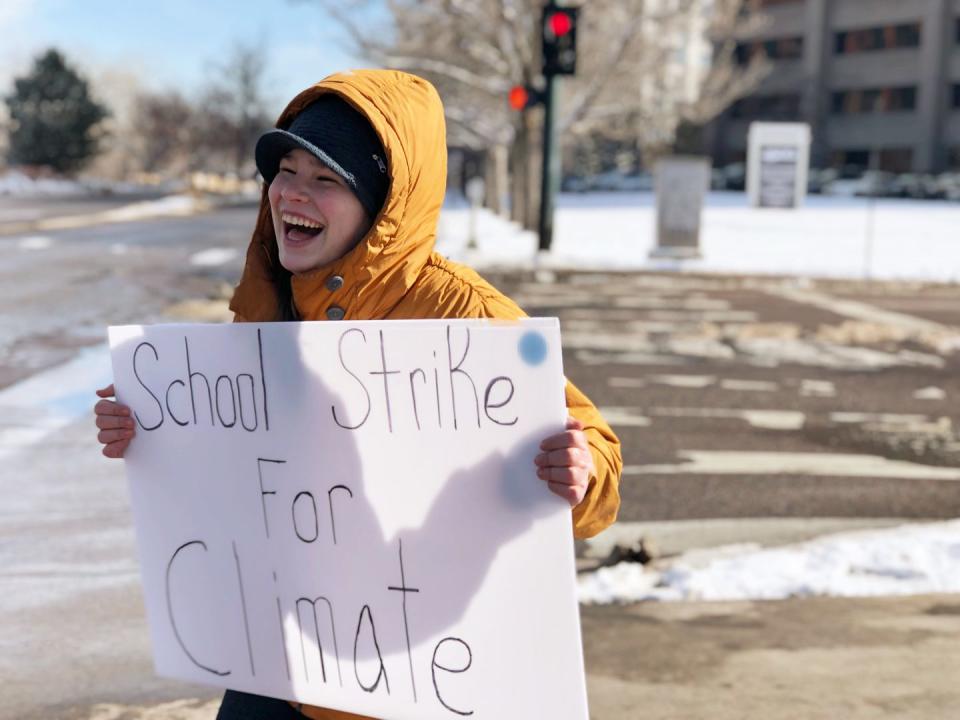
Are there any changes people can make on a day-to-day basis to combat climate change?
Haven: I became a vegetarian a year ago. I ride my bike to school. I use reusable water bottles. I use less power by turning off the lights when I get out of a room.
Alexandria: I've stopped flying, and I use more public transport. I'm also trying to eat less meat and recycle.
Maddy: Smaller actions can sometimes be inaccessible and expensive to people who aren't wealthy, so it's hard for a lot of people to be able to make those actions. The biggest fossil fuel corporations in our country are the main offenders. We as people contribute such a minuscule amount of carbon emissions and environmental degradation that we shouldn't be blaming ourselves, we should be blaming fossil fuel corporations and the lack of governmental regulation of what they do. I think it's still important to take personal actions to be more sustainable but ultimately, the actual fault should be placed on fossil fuels.
What activists or politicians inspire you?
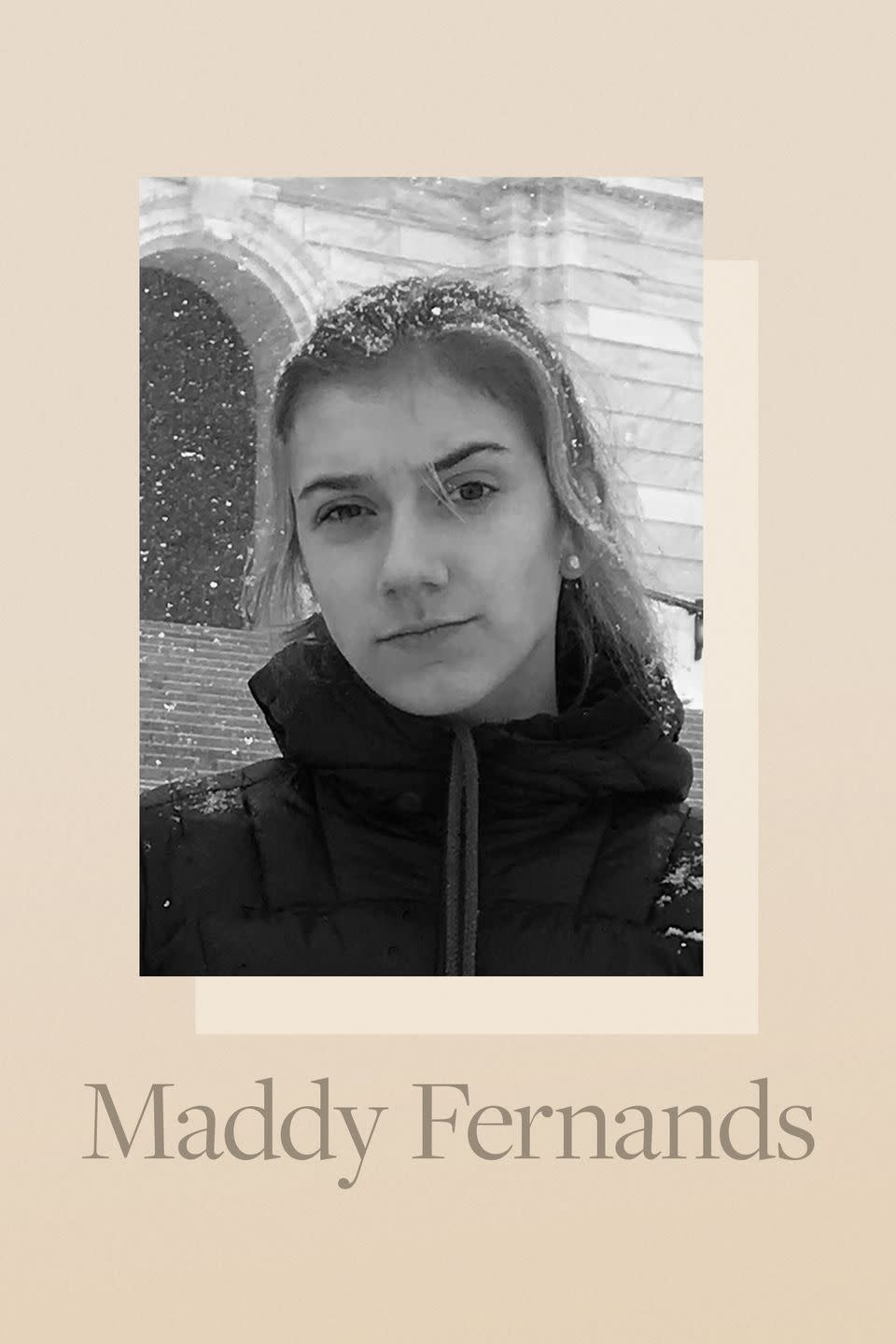
Maddy: Alexandria Ocasio-Cortez has been in an inspiration, because she is not afraid to say what she believes in and sticks to what she believes in. I find that a lot of politicians can sometimes be wishy-washy and change their minds on a lot of things. She believes in what she believes in and is unafraid of the consequences and is unafraid of her beliefs.
Isra: A lot of indigenous activists across the U.S. fighting against things like pipelines and trying to save their treaty rights inspire me. It's really powerful seeing these amazing people of color fighting for what people have taken from them and they're getting back what they deserve.
What's your dream job?
Isra: I remember in kindergarten saying I wanted to be the president of the U.S. and I guess it's still kind of true today. I definitely want to run for office. If we get a few more people of color, a few more women, in office that's really important to me. I also want to be a lawyer, probably civil rights.
Haven: I want to be a congressperson or a lawyer that helps activists.
Alexandria: I could see myself working at the United Nations.
Maddy: I would be interested in being a one-term congressperson, who is unafraid of saying their opinions and sticking to them. We need more one-term congresspeople.
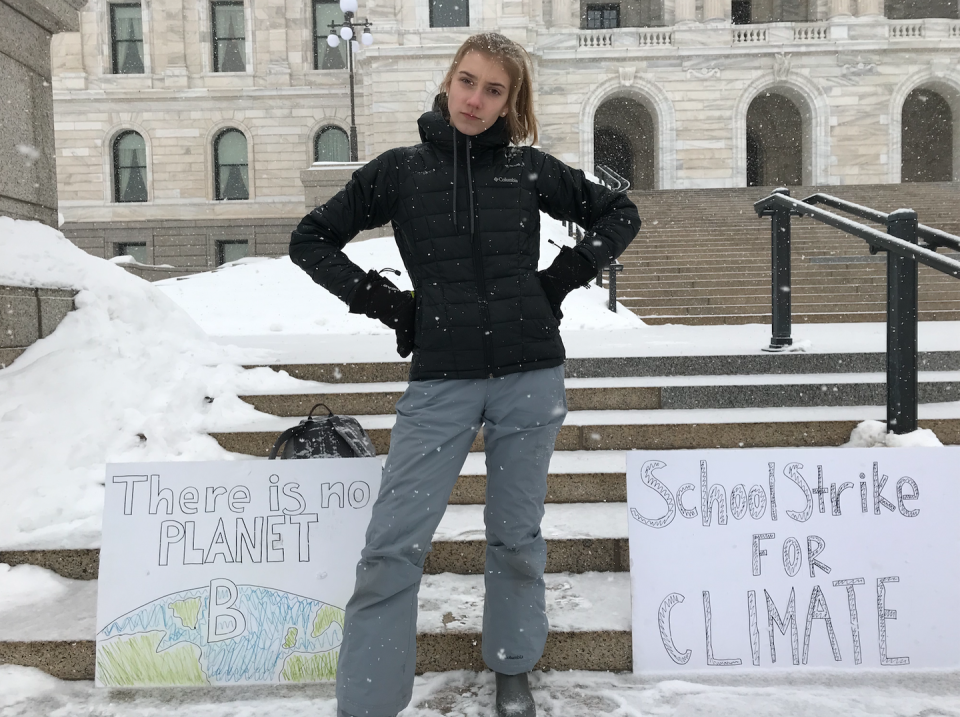
What's next for the movement?
Haven: There is another strike on May 3rd and this summer we want to work with politicians to push our ideas. We're going to keep on going until the youth voice is louder, because it's our future.
Maddy: Follow us on social media and our website for updates. Join our movement in whatever capacity or whatever way you can. The goal is to get as many young people involved as possible and we are going to try to be as active as possible in the future and we're going to continue to grow this great momentum.
('You Might Also Like',)

